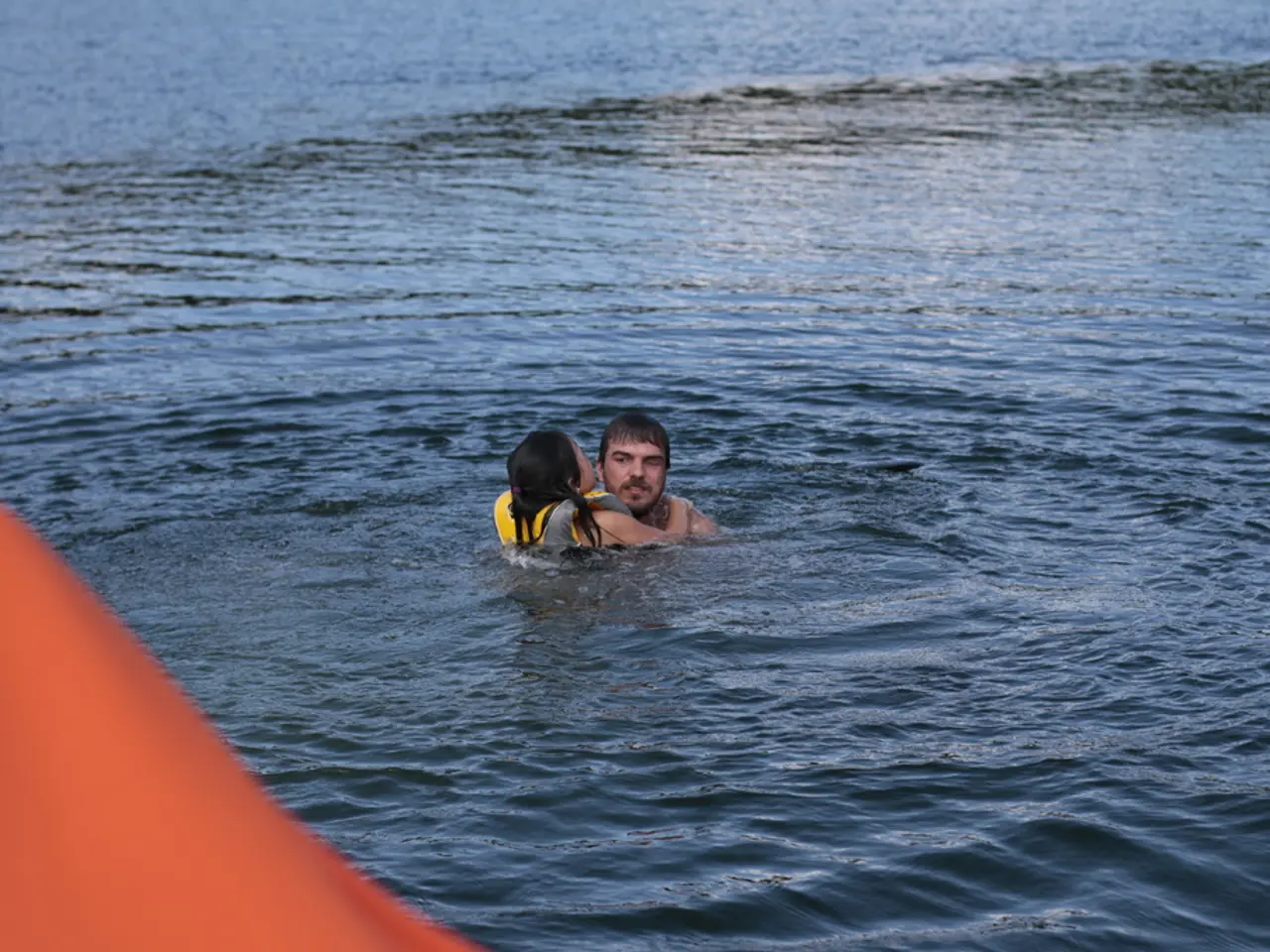Growing prevalence of youth embracing far-right ideologies
Going Extreme: Far-Right Youth Groups on the Rise in Germany
From "Unitas Germanica" to "Zollern-Jugend Aktiv", these new names paint a troubling picture: right-wing extremist youth groups are multiplying in Germany. Thanks to social media, these young individuals and young adults, initially, connect and radicalize themselves [1]. Most of these groups can be classified as neo-Nazi [2].
It isn't just in Baden-Württemberg. According to the Constitutional Protection agency, right-wing extremist propaganda has skyrocketed nationwide, notably since 2024. Apart from public demonstrations and rallies, these groups organize hikes and combat sports training [2]. Authorities consider the potential for violence among these young right-wing extremists as high.
A "Gateway" to Radicalization: Anti-LGBTQ Sentiment
These extremist groups often target people of Muslim faith, foreigners, or those from the left political spectrum. Interestingly, the opposition to the LGBTQ community serves as a "kind of gateway" to draw individuals into the right-wing extremist scene [3]. The problem isn't limited to Baden-Württemberg; just recently, Thuringia's Constitutional Protection President warned of a new right-wing youth culture and rapid radicalization in the digital space.
A Wave of Arrests
Examples of such young, radical groups include "The Last Wave of Defence", a self-declared right-wing extremist group of teenagers, aged between 14-18 who were arrested for planning attacks on migrants and political opponents, among other charges [5].
Countering the Threat
The German government manages these threats through various means. The Federal Office for the Protection of the Constitution (BfV) monitors extremist parties like the Alternative für Deutschland (AfD) and other far-right organizations, limiting their operational capacities [2]. Law enforcement conducts regular raids and arrests to dismantle extremist networks, while suspected members face legal prosecution.
The government also invests in educational programs and community initiatives to reduce radicalization, particularly among young people. These efforts focus on countering propaganda and fostering democratic values. The authorities and media aim to raise awareness about the dangers of extremist ideologies to reduce recruitment and public support for such groups [1][5].
A Table of Trends, Groups, and Methods
| Trend/Group/Method | Description | Countermeasure ||-------------------------------|-----------------------------------------------------------------------------|-------------------------------------------|| Politically motivated crimes | 40% rise (2025), mostly far-right | Surveillance, public awareness || "The Last Wave of Defence" | Youth group planning attacks on migrants and left-wing targets | Arrests, prosecution, prevention programs || AfD classification | Far-right extremist party, monitored by BfV | Monitoring, legal limits || Underground online networks | Youth organizing through encrypted apps | Law enforcement, digital surveillance |
In short, the escalating number of right-wing extremist youth groups in Germany calls for increased surveillance, legal action, and preventive education to safeguard the nation's democratic order and social harmony [1][2][5].
References:[1] The Guardian, "Germany reports surge in politically motivated hate crimes"[2] Deutsche Welle, "Germany's BfV: Alternative for Germany party 'proven far-right extremist entity'"[3] Süddeutsche Zeitung, "Intermediate report "Right-wing extremist agitation" Baden-Württemberg Constitutional Protection agency"[5] Reuters, "Five teenagers arrested in Germany for suspected far-right extremism"
Social media provides a platform for these young right-wing extremists to connect, radicalize, and propagate their anti-LGBTQ sentiments, causing a potential gateway to further radicalization [3]. The entertainment industry plays a role in countering these trends by creating content that fosters democratic values and educates the public about the dangers of extremist ideologies, aiming to reduce recruitment and public support for such groups.






